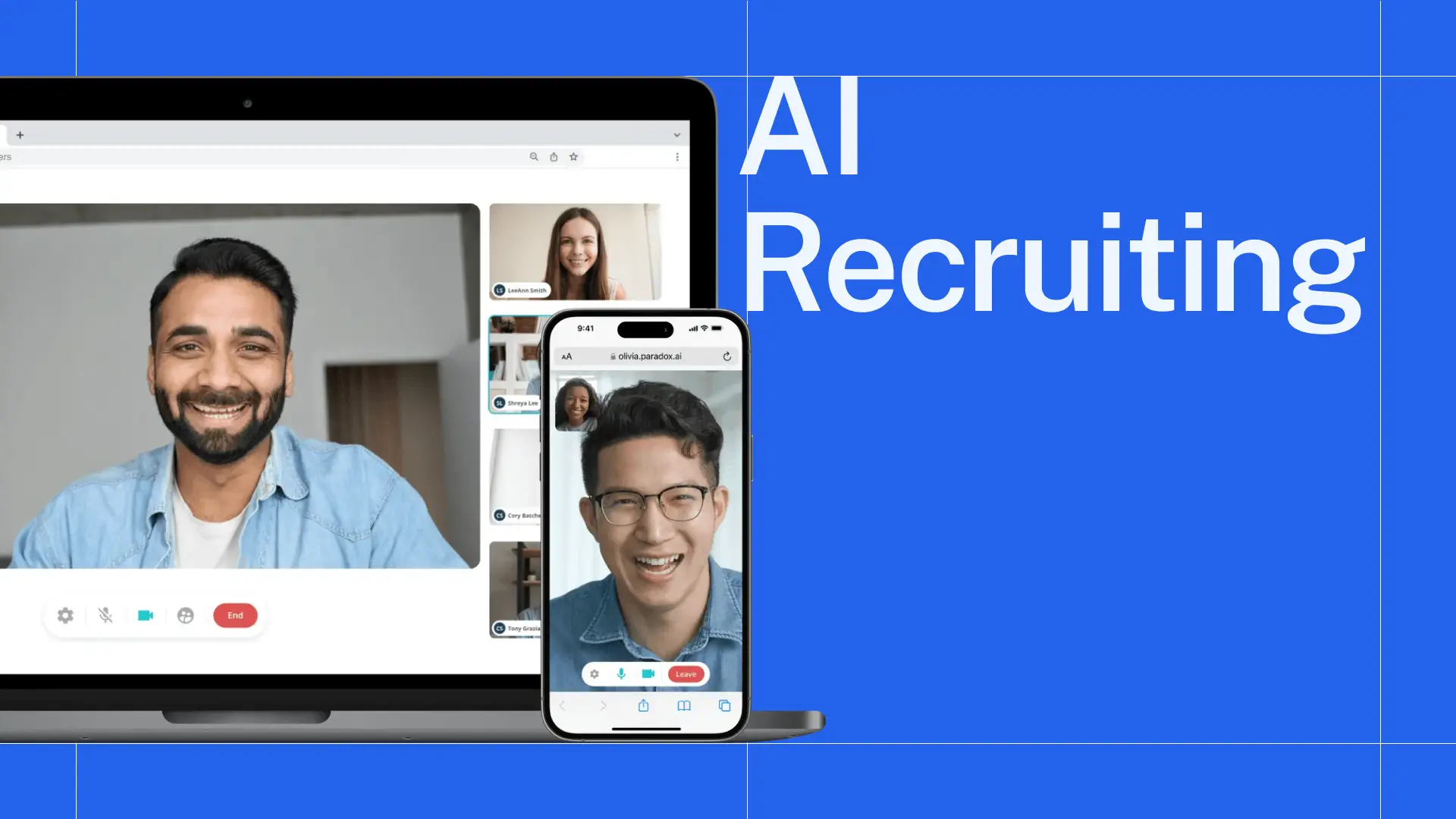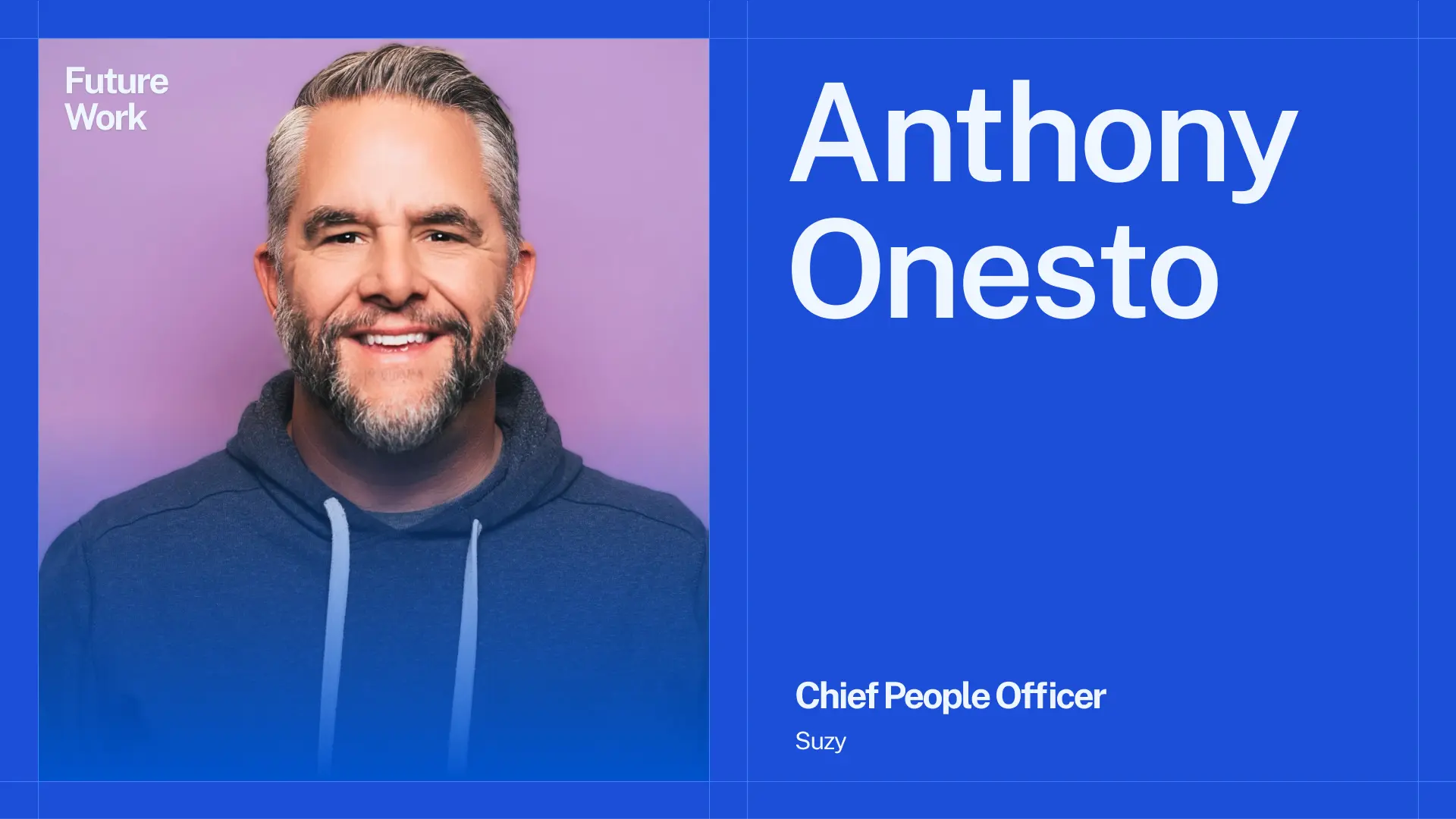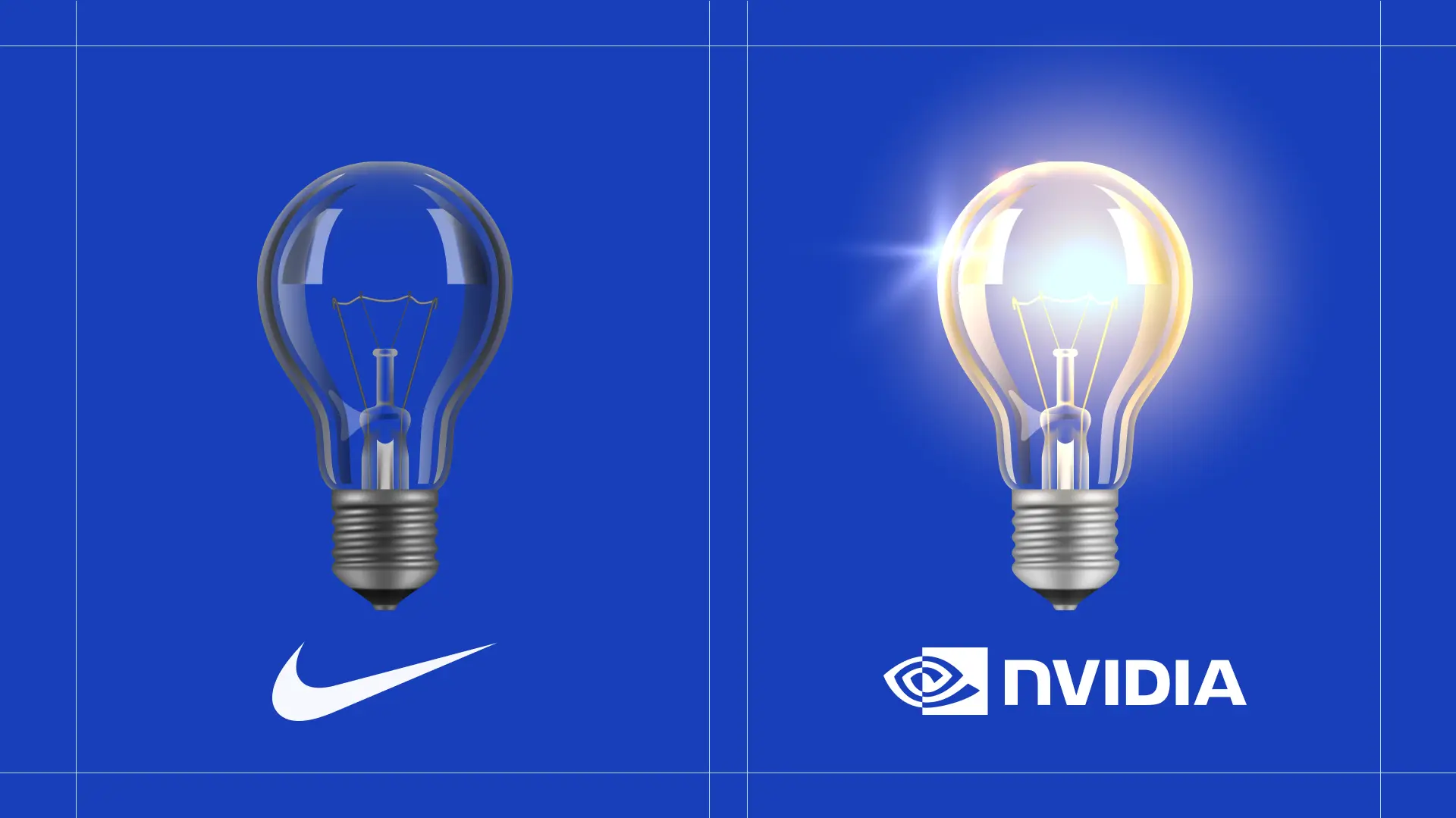Attracting the right people is one of the most important, yet challenging, things for a company: 1 in 5 major corporations have more than 1000 open job requisitions right now.
Fortunately, AI is here to help.
Our latest report, "The World's 40 Most Popular HR AI Tools," found that Recruiting AI Leads the AI HR space with 3 out of the Top 5 and almost 40% of all entries.

Together, the fifteen AI recruiting platforms on the list generate 12.2 million visitors and 356,000 searches daily, a vast majority of the total traffic and searches.
With bots now helping individual jobseekers apply for up to 750 jobs per day, it’s no wonder HR is flocking to AI to support them in tackling their recruiting challenges.
Where and how?
Let’s look at what recruiting could and should look like in the age of AI in the Workplace.
The AI Way of Recruiting
Ask any candidate or Talent Acquisition specialist, and they’ll agree: the recruitment process is long (up to 120 days to fill a role) and complex—probably too much so.
Thankfully, AI Recruiting Software is here, revolutionizing how we attract talent from job descriptions to final interviews.
Job Descriptions

A clear and concise job description is crucial because it affects the quality of candidates applying for the job. They have also become increasingly important for the matching algorithms on job portals to match the right job seekers with the right jobs.
However, while 72% of hiring managers believe they provide clear job descriptions, only 36% of candidates agree.
AI can be of major help here.
Job boards like Indeed and LinkedIn have launched AI assistants for writing great job descriptions, following best practices to ensure your job gets noticed and receives the best matching and most qualified applications.
Textio Loop even helps talent acquisition teams optimize job descriptions to be more inclusive.
Sourcing

Sourcing candidates is like finding a needle in a haystack.
The number one AI platform in our list, Eightfold AI (named after the Noble Eightfold Path in Buddhism!), helps companies like PayPal, American Express, and Moderna source better and faster by combining a skills taxonomy of one million skills and AI.
There are more lightweight solutions, too.
Fetcher is an easy way to connect multiple talent sources and let AI serve up the most likely candidates – whether actively searching for a job or appearing passive.
And If you’re used to ChatGPT, Juicebox lets you ‘speak’ with your talent pool. Its “PeopleGPT 2.0” tool lets you quickly use prompts and follow-up questions to find who you want.
But, sourcing shouldn’t be just about a new candidate pool.
Some of the largest platforms on the list act as talent mobility solutions, allowing companies to find perfect matches for their open roles within their ranks.
This is good news for the 75% of companies currently not tapping into their internal talent pools.
Beamery, a talent marketplace solution, went all in on AI last March to improve its functionality. Its TalentGPT tool helps with skills-based talent matching from within Microsoft Teams and Slack.

Phenom is another AI-powered skills platform that matches job seekers with suitable employment opportunities. The company claims that tens of millions of job seekers and recruiters use the platform to access over 1 billion candidate profiles across 180 countries weekly.
Screening
Minimum qualifications apply for most open roles.
Up until now, screening for these often important yet unremarkable qualifications, like whether an applicant for a trucking gig has a license, was done by a human.
Now, an AI like Skillate or Xor.AI can parse the resume, distill key qualifications, and compare it to the requirement, so TAs don't have to screen them manually.
As humans are inherently biased, good AIs further have the potential to filter resumes more objectively at the top of the funnel. In an experiment, using Sapia’s AI resulted in more women being hired.
Screening Interview

Then, there is typically a screening interview, where a recruiter speaks to a smaller pool of candidates to get a sense of whether they’d be a good fit for the role.
For example, it helps sift out the people who sounded good on paper but did not match the company and team culture.
This round of interviews can now be done by an AI like HireVue, Paradox, Sapia, and Humanly, posing the same questions and getting replies by text or video.
Paradox (and its AI 'Olivia' - which, fun fact, is named after the founder's wife) helps companies like FedEx, McDonald’s, and Amazon to create conversational interview experiences. It uses an AI called Olivia, which interviews candidates via text and answers questions throughout the applicant journey.
And it’s not all just in the US and in English. Most of these platforms speak many languages, while regional alternatives like Neufast, out of Hong Kong, offer multi-lingual video interviews.
Assessments

Assessments may be needed, like a coding test. Again, AI can take over the workload.
HireVue offers AI-driven chatbots so candidates can apply 24/7 and skills assessments to match the right person with the right role before a human gets involved.
Glider can even simulate a company’s tech environment and code so you can understand real-world skills and the ability to do the job on day 1!
Vervoe, which calls itself a “job simulation platform,” analyzes the candidate's responses to benchmark them against millions of others. It also tracks how long they take to complete the assessment and how engaged they are.
Human Interview
After more filtering based on the responses in these interviews, there’s typically an interview scheduled with the hiring manager.
Usually, that would be a long back-and-forth, but now, an AI like Paradox can do this in real time and take all the admin work out of our hands.
Will AI eventually take over even this round, too? Interviewer.AI, Paradox Video, and Sapia seem to be taking steps in that direction.
While Paradox started as an AI chat app, it recently launched Paradox Video, which embeds video capabilities into its conversational AI interface.
Sapia, like Paradox, offers video interviews for its customers in Australia, including Starbucks and Qantas. Sapia says candidates like those interviews better because they can retake interview answers and submit what best highlights their strengths.
Considering how quickly AI develops, like ChatGPT 5, which supports video natively, we may be less than a year away from (video) interviewing fully with AI for certain roles.
Interviews: AI fighting with AI

The workload for Human Resources has increased significantly as, ironically, candidates can apply to hundreds of jobs daily using AI tools.
This creates a huge amount of applications to sift through, something that HR and TA teams increasingly tap into AI for.
Business Insider’s Aki Ito discovered the reality of these apps in “I Used Resume Spammers to Apply for 120 Jobs. Chaos Ensued,” a great piece of experiential journalism.
Highlighting the challenging nature of being a job seeker, Aki writes:
“Let's face it: HR departments approach the job-search process in a purely transactional manner, sending out automated rejections to desperate job seekers who spent days polishing and perfecting their applications. Now I was doing the same, using adaptive machines to get my human foot in the door. It made the whole shitty process feel a bit more manageable.”
Sadly for her, while the promise of aptly named platforms like “LazyApply” seems great for the job searcher, the AIs appear to be a bit too loose in their approach.
Submitting up to 750 job applications per day, the bots:
- Inaccurately represented Aki as African American and speaking conversational-level Spanish (this is why we need those screener interviews)
- Sent applications to multiple employers with a cover letter applying for a position at a competitor from three years prior
- Applied for jobs that fell outside of the scope Aki had set
In short, not the best experience.
Aki Taha, founder of TalentStories and previous Talent Acquisition Director at Netflix and Uber, shared for this newsletter:
“Both sides -- candidate and company -- want authenticity. They want to "see" the other party, and de-risk their respective high-risk decisions. By default, though, the barriers to seeing one another clearly are already many, and AI application platforms just add to those.” – Aki Taha, founder of TalentStories
And while this highlights why HR now needs AI to combat all these spam applications, it’s not just AI that’s the issue here, shared Jonah Levey, my co-founder and a veteran in the Recruitment Tech space:
“It’s not just AI bots making the application process easier and creating “application spam,” it’s also job platforms with features like one-click and batch apply, where jobseekers are shown a list of jobs, and can apply with just a click to one, or all.” – Jonah Levey
Recruiting is ripe for an AI makeover
And indeed, not all of recruiting’s challenges are the fault of AI-apply, far from it.
Challenges in talent acquisition are as widespread as they are persistent.
According to the 2023 PwC CEO study, CEOs put recruiting in third place for most inefficient processes, tied with meetings and barely trumped by email and procurement.
As Josh Bersin says in his podcast, “What’s Wrong With The Recruiting Department?”:
“Recruiting, by its very nature, is the most important thing HR organizations do. If you aren’t finding the best, brightest, and most aligned people to join your company, all the other management and business process work will fail.” – Josh Bersin
Josh’s research shows that 74% of companies underperform on recruiting best practices. And that’s a real problem because, as mentioned in the intro, recruiting is the most important thing a company and its HR team can do.
According to his study, companies leveraging the right talent acquisition strategies “don’t just boast high employee engagement and retention numbers. They are more adaptable to change, more profitable, more innovative, and their customers are more satisfied.”
Josh recounts a conversation with a head of Talent Acquisition who shared that after deep research, it turned out that a great recruiter was the thing that most improved recruiting top talent. Great recruiters make for great talent acquisition.
But those great recruiters need time to do the “strategic, creative, and deeply human-centered” work that is great recruiting.
With so much inbound and distractions, AI is a welcome solution to recruiters.
The Bottom Line
Recruiting is important.
Done well; it’s very human, creative, and strategic.
And AI is just the tool to help us make time for this.
– Daan
You Might Also Like …
Future Work
A weekly column and podcast on the remote, hybrid, and AI-driven future of work. By FlexOS founder Daan van Rossum.
Our latest articles
FlexOS helps you stay ahead in the future of work.







![[Report] The Top 100 AI for Work – April 2024](https://assets-global.website-files.com/6442419dcf656a81da76b503/660e194ea7792c044cf315de_FlexOS%20-%20Top%20100%20AI%20for%20Work%20Platforms%20(Apr%202024).webp)
![[Stanford Research] AI Beats Humans // Stay Ahead #21](https://assets-global.website-files.com/6442419dcf656a81da76b503/6626969da94edaba453bac4f_Get%20Ready%20For%20Your%20AI%20Clone%20(4).webp)


